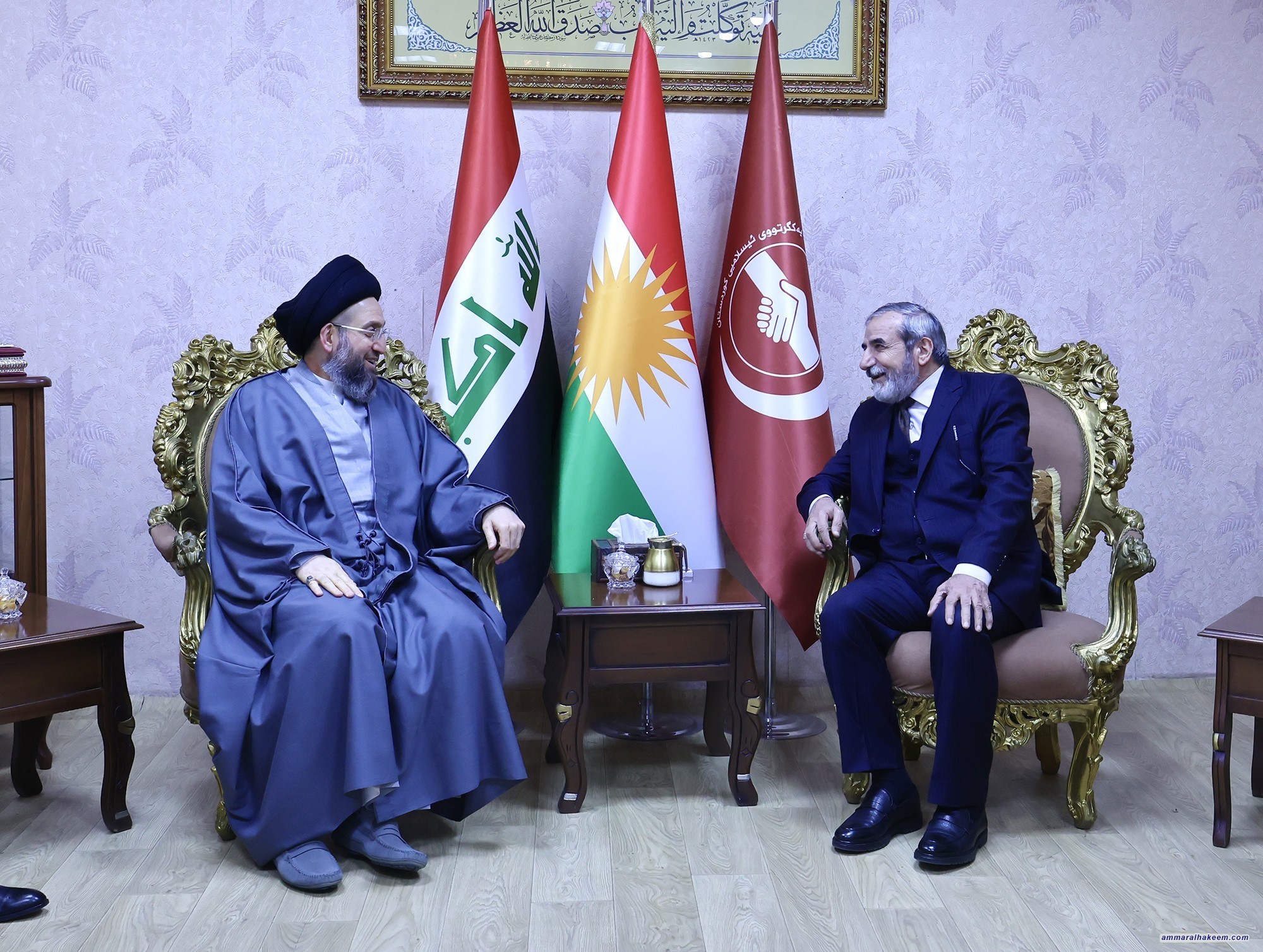Sayyid Al-Hakeem: Iraq's Progress Belongs to All, Calls for Reconstruction Fund for Lebanon and Gaza
During the Middle East Peace and Reconciliation Forum (MERI) in Erbil, attended by Kurdistan Region Prime Minister Masrour Barzani and leading political and media figures, Sayyid Ammar Al-Hakeem congratulated the people of Kurdistan on their recent elections, applauding the high public turnout and effective administration by the Independent High Electoral Commission.
His Eminence remarked, “Building a nation requires a stable political, social, and economic foundation. While Iraq has endured wars and sectarian conflicts, it now enjoys a remarkable level of stability across political, social, and security fronts, facilitating reconstruction and development. Iraq has shifted from reactive to proactive security measures, taking the lead against terrorism.”
Sayyid Al-Hakeem urged a balanced view of Iraq's progress, encouraging a comparison of the country’s current state with its past and with other nations that have undergone similar experiences. H.E. expressed optimism that continued stability will anchor Iraq’s role and allow it to advance beyond periods of instability, recognizing the challenges Iraq has addressed in a relatively short time.
H.E. also discussed the delay in selecting a new Speaker of Parliament, explaining that ongoing deliberations within Sunni blocs over multiple candidates have prolonged the process, and voiced optimism that a decision would be made in the upcoming session.
Sayyid Al-Hakeem explained that political stability supports security, which in turn drives economic stability, fostering social cohesion and a strong alignment between society and government. This progression, he noted, opens doors to greater regional and international engagement. H.E. emphasized that political cooperation reflects social harmony across diverse communities and stressed that laws require philosophical alignment for legitimacy.
Highlighting the stability in which Prime Minister Al-Sudani’s government has operated, Sayyid Al-Hakeem credited the foundations laid by previous governments and noted positive public sentiment regarding recent improvements in services and development. He encouraged considering recent surveys showing public support for the government and political forces, which H.E. described as a strong basis for future governments.
H.E. affirmed, "Iraq is far too significant to be confined to any single party, as history has shown." H.E. acknowledged the decentralization framework enshrined in the constitution, noting that while a centralized mindset still exists, there is slow progress toward administrative decentralization, with hopes for a quicker transition and an end to central-local tensions.
Sayyid Al-Hakeem stressed the importance of considering both the Kurdistan Regional Government and federal government perspectives on unresolved issues and emphasized building trust as a foundation for unity. H.E. observed that resolving longstanding issues takes time, particularly in a country like Iraq that has experienced extended periods of instability. While progress may fall short of ideal expectations, it is aligned with practical realities.
H.E. encouraged a focus on proposed laws and progress toward consensus, highlighting that significant steps have been taken, with government programs being closely monitored by a multi-party committee. H.E. also mentioned that the State Powers Alliance has demonstrated its impact, recently in local elections, and will continue to evaluate options that align with its vision in future elections.
Sayyid Al-Hakeem welcomed the positive shift from sectarian divides to intra-community political competition, noting that competition within communities now strengthens the political system. H.E. pointed out that cross-sectarian and cross-ethnic initiatives bring together more diverse forces, urging recognition and pride in these achievements.
Reaffirming his solidarity with the Palestinian and Lebanese people, Sayyid Al-Hakeem called for a dedicated reconstruction fund for Lebanon and Palestine post-conflict, and renewed calls for ongoing humanitarian assistance, support for the displaced, and sustained political and media advocacy.


/9/3/photo_2025-12-10_09-25-13.jpg)
/9/2/photo_2025-12-10_09-17-58.jpg)
/9/1/photo_2025-12-10_09-11-13.jpg)
/8/3/photo_2025-12-09_10-42-49.jpg)
/8/2/photo_2025-12-09_10-37-31.jpg)
/8/1/photo_2025-12-09_09-54-18.jpg)
/7/1/photo_2025-12-08_09-38-41.jpg)
/5/1/photo_2025-12-07_09-25-35.jpg)
/3/2/photo_2025-12-04_11-05-55.jpg)
/3/1/photo_2025-12-03_11-49-28.jpg)